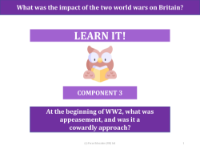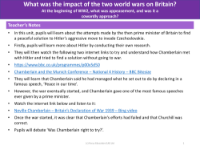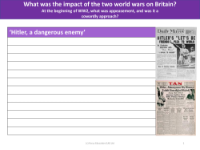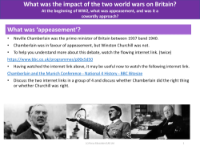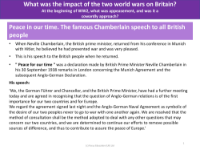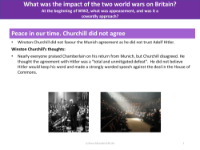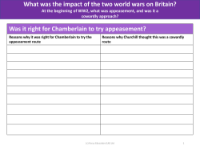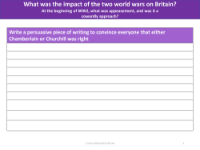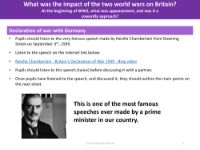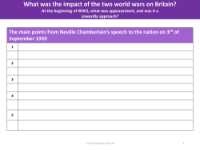At the begining of WW2, what was appeasement and was it a cowardly approach? - Info Pack - Year 6
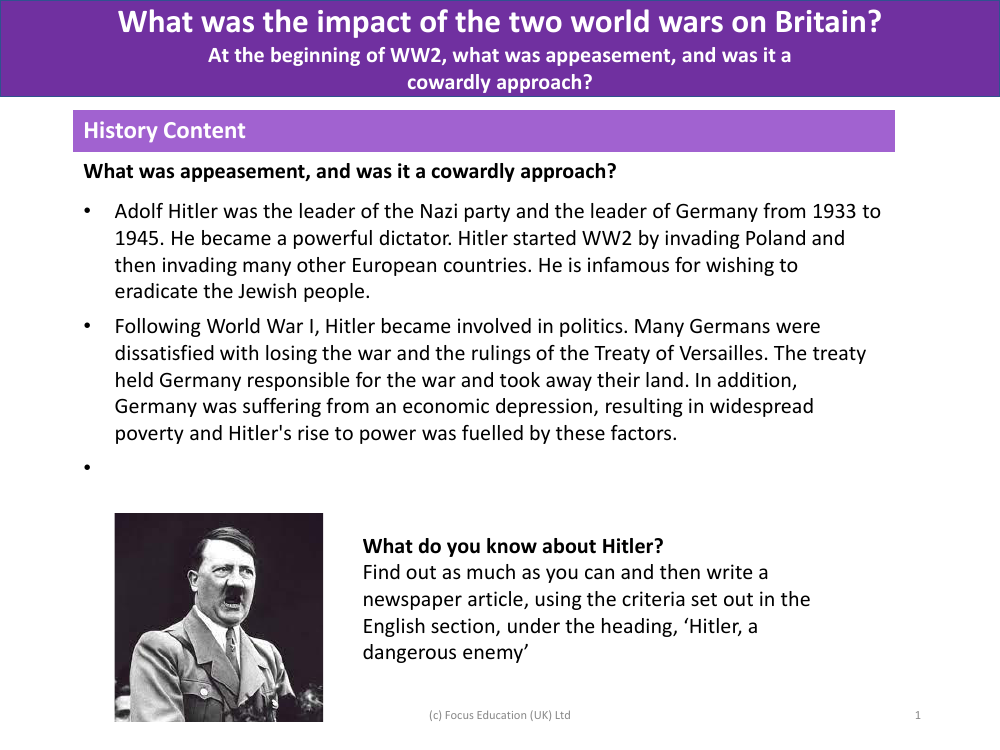
History Resource Description
Appeasement was a significant policy adopted by European nations, particularly Britain, in the lead-up to the Second World War. The approach involved making concessions to Adolf Hitler's Germany in the hopes of avoiding conflict. The policy was grounded in the desire to maintain peace after the devastating effects of the First World War and the economic depression that followed. Hitler, who had risen to power amidst Germany's economic turmoil and widespread dissatisfaction with the Treaty of Versailles, began to expand German territory aggressively. This expansion included the invasion of Poland, which ultimately triggered the onset of World War II. The question of whether appeasement was a cowardly approach is complex, involving considerations of the political and social climate of the time, the trauma of the previous war, and the desire to prevent another catastrophic conflict.
The impact of the two world wars on Britain was profound and far-reaching. Both conflicts required enormous sacrifices from the British population, both on the home front and in military service. The wars led to significant loss of life, economic strain, and the transformation of social structures. They also resulted in Britain's diminished status as a world power and the eventual dismantling of the British Empire. The aftermath of World War I saw the Treaty of Versailles, which imposed harsh penalties on Germany, contributing to the conditions that led to the rise of Hitler and the subsequent World War II. The policy of appeasement is often scrutinised in historical discussions for its role in allowing Hitler to gain enough strength to launch a war that would once again bring devastation to Britain and the world.
